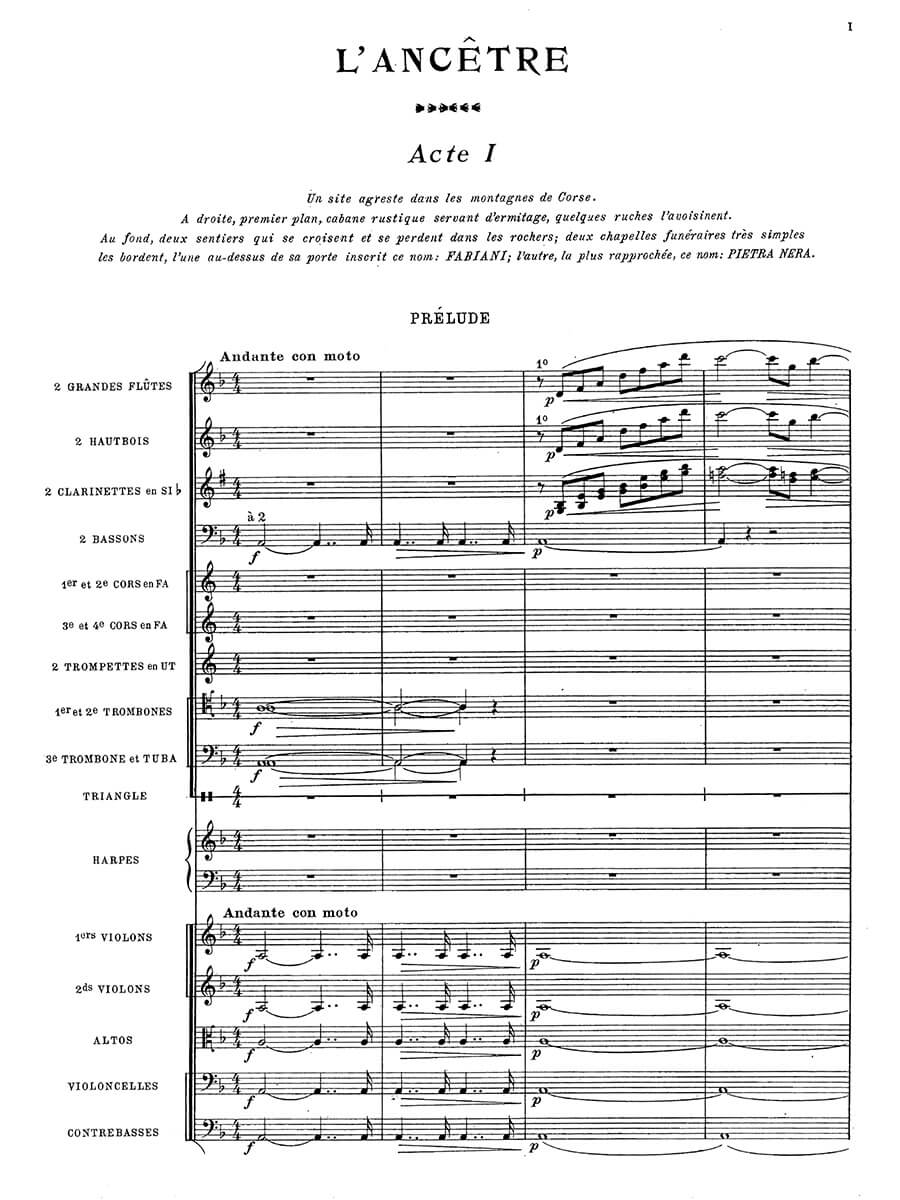L‘ancêtre. Lyric drama in 3 acts (with French libretto)
Saint-Saëns, Camille
65,00 €
Preface
Charles-Camille Saint-Saëns – L‘ancêtre
(b. Paris, 9. October 1835 — d. Algier, 16 December 1921)
Preface
Camille Saint-Saëns was a talented prodigy who enjoyed a successful musical career that spanned seven decades. Although he was often at odds with modernistic compositional techniques employed by his fin-de siècle contemporaries, Saint-Saëns broadly influenced the style of la Belle Époque music, and earned the respect of esteemed colleagues including Gabriel Fauré and Maurice Ravel. Saint-Saëns maintained a strict adherence to conventional techniques in his compositional style and tended to create well-crafted neoclassic works.
Saint-Saëns composed a dozen operas that were staged during his lifetime but ceased appearing in the repertory after his death. Although well-respected as a symphonic composer, Saint-Saëns never reached the same level of respect in the opera world as his peers, especially Jules Massenet. According to a biography published in the Musical Quarterly in 1922, Saint-Saëns “never gained the popularity enjoyed by his fortunate rival Massenet as a composer for the operatic stage, and as a result honored the other with an ill-concealed enmity.”1 In the 20th and 21st centuries, only Sampson et Delila has remained in the standard repertoire while the other operas have faded into undeserved obscurity.
L‘ancêtre was composed in 1905 and premiered at the Opéra de Monte-Carlo on February 24, 1906. The libretto was written by Lucien Augé de Lassus (1841-1914), who traveled with Saint-Saëns to Corsica to observe local elements infused into the story. The Corsican flavor, realistic themes, and abrupt, tragic ending found in L‘ancêtre echo the elements of Versimo operas created by Italian composers at the turn of the 20th century. L‘ancêtre was well-received, and eventually made its way to the Opéra Comique, where it made its Paris debut on January 28, 1911. According to a New York Times Correspondent, “Although the story of the libretto is rather trite the operetta captivated nearly all those present at the first performance.” …
Read full preface > HERE
Score Data
| Edition | Opera Explorer |
|---|---|
| Genre | Opera |
| Size | 210 x 297 mm |
| Printing | Reprint |
| Pages | 348 |
